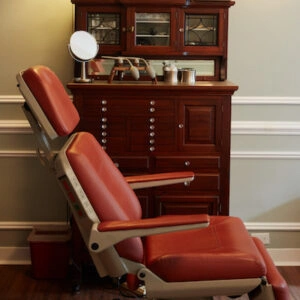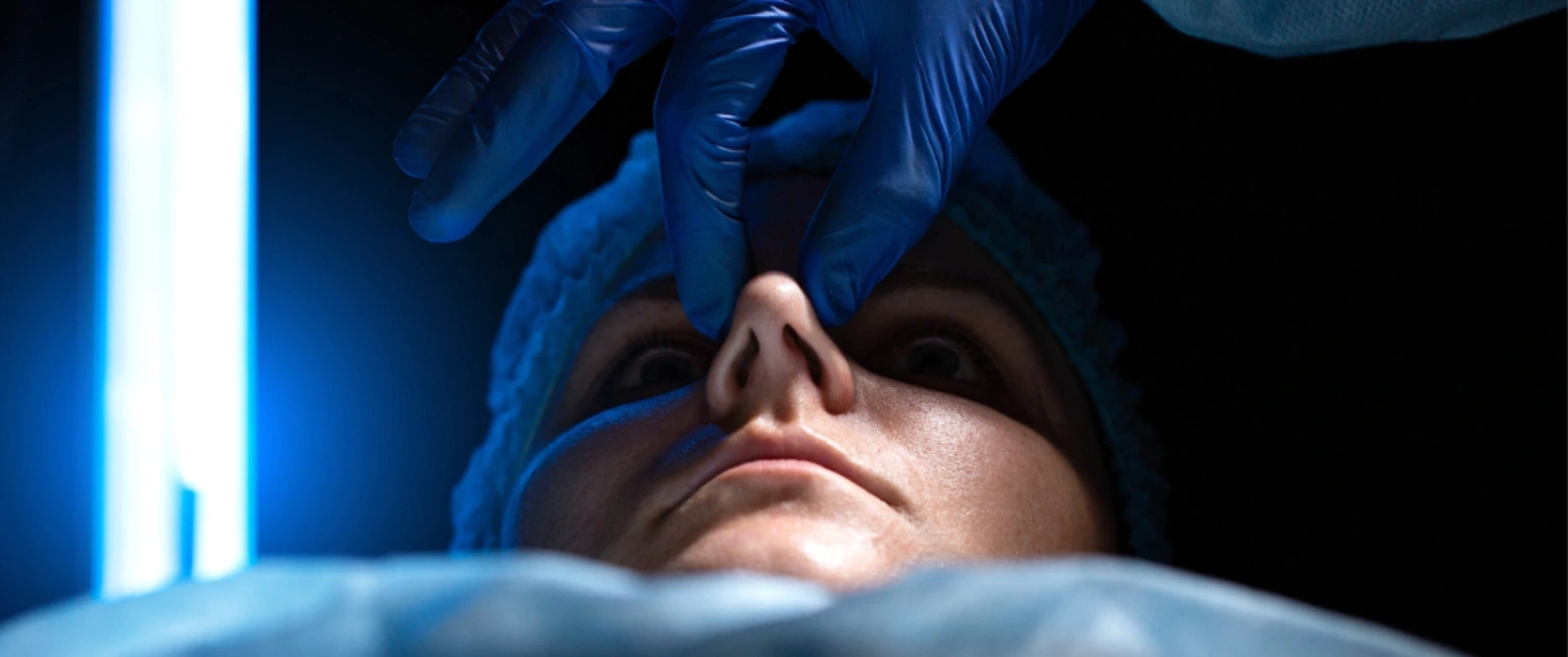Breathe well again and avoid infections with sinus surgery
Dr. Mourad brings more than ten years of clinical experience to the care of patients, including many from SoHo, who suffer from sinus-related problems such as ongoing sinusitis, chronic nasal congestion, frequent headaches, and other issues that interfere with comfort and daily life. By utilizing state-of-the-art techniques and innovative technology, he offers treatment plans that are customized to each patient’s specific situation. SoHo residents experiencing chronic sinus pain or difficulty breathing can trust Dr. Mourad to deliver solutions that provide meaningful relief and support improved nasal health, ultimately enhancing their overall quality of life.
Book an appointment to determine if you need sinus surgery in SoHo
What is sinus surgery?
The nasal cavity is made up of interconnected small cavities and passageways that work together to facilitate airflow and drainage between both sides of the nose. Sinus surgery is performed to carefully enlarge these channels and remove portions of the walls within the sinus system, which helps prevent blockages and ensures proper drainage. Expanding the sinus passages reduces internal pressure, decreases the frequency of sinus infections, and can lessen the severity of each episode. Moreover, the more open sinus spaces allow saline rinses and topical medications to reach the areas affected by congestion or inflammation more efficiently, enhancing the success of treatments and supporting overall sinus health.
What are the different types of sinus surgery?
The leading surgical approaches for enhancing sinus drainage include Functional Endoscopic Sinus Surgery, referred to as FESS, and Balloon Sinuplasty. For cases that require revision procedures or involve sinuses adjacent to vital areas such as the eyes or the brain, surgeons frequently incorporate Image Guidance technology into the operation. This technology ensures accurate and careful navigation throughout the surgical process, allowing the surgeon to treat the affected sinus pathways effectively while maintaining the highest levels of safety for the patient.
Functional endoscopic sinus surgery (FESS)
Functional Endoscopic Sinus Surgery, abbreviated as FESS, represents the most frequently chosen surgical approach to treat chronic sinus problems. The procedure employs an endoscope, which is a thin, flexible tube that features a light and a small camera at the tip. This instrument is inserted carefully through the nasal passages, allowing the surgeon to clearly view and magnify the sinus interiors. Obstructions such as polyps, bony growths, or other tissue blocking normal airflow and drainage can then be carefully removed. After clearing the obstructions, the openings of the sinuses are expanded to improve drainage and reduce inflammation. FESS is typically performed under general anesthesia, and the duration of the surgery varies depending on the complexity and needs of each patient.
Image-guided surgery (IGS)
In certain situations, surgeons utilize a sophisticated three-dimensional image guidance system that integrates CAT scan data to provide live navigation of surgical instruments inside the sinuses. This technology enables precise positioning and can be used in combination with Functional Endoscopic Sinus Surgery or certain Balloon Sinuplasty procedures. Image guidance is especially helpful in revision surgeries or when working on the frontal, lateral ethmoid, or sphenoid sinuses that lie close to vital structures such as the brain, eyes, and essential nerves and blood vessels. Employing this technology ensures maximum accuracy and safety during complex sinus procedures.
Balloon Sinuplasty
Balloon sinuplasty is a modern, minimally invasive sinus procedure that focuses on safely opening blocked sinus passages to restore proper drainage. During the operation, a thin wire guide is introduced into the main sinus cavities, and a small balloon catheter is then guided into the sinus opening. When the balloon is correctly positioned, it is slowly inflated using water to expand the sinus passageway, which enhances drainage and reduces pressure. This procedure can address three of the four major sinus cavities but does not remove inflamed or infected tissue. Patients with nasal polyps or ethmoid sinus disease typically require alternative surgical interventions.
Open Sinus Surgery
In certain complex situations, more traditional open sinus surgery is needed. This technique involves creating small incisions, usually either inside the nostrils or along the upper lip, giving the surgeon direct access to the sinuses. With this method, obstructive tissue or other blockages that cannot be treated with less invasive procedures can be carefully removed, allowing for effective resolution of complicated sinus issues.
Transoral Endoscopic Surgery
Transoral endoscopic sinus surgery is a newer surgical technique that allows the sinuses to be accessed through the mouth. Using an endoscope, the surgeon can remove tissue or blockages that are responsible for chronic infections or impaired drainage. By avoiding external incisions, this procedure is less invasive while still achieving significant improvement in sinus function and providing patients with long-term relief from sinus-related problems.
Discuss risks associated with each sinus surgery option with Dr. Mourad
It is crucial for patients to be aware that sinus surgery is not a one-size-fits-all solution, as each type of procedure has particular indications, advantages, and risks that must be considered. The decision about which surgical approach is best will be determined by the patient’s unique health circumstances, nasal structure, and medical history. During a thorough consultation, the surgeon will explain every option in detail, outlining the benefits and potential complications associated with each method. This ensures that patients are fully informed and able to make a well-considered decision about whether sinus surgery represents the best course of action for their condition.
When is sinus surgery required?
Acute sinusitis is a condition in which a sinus infection persists for less than one month, whereas chronic sinusitis occurs when a sinus infection endures for an extended period and does not respond to conventional therapies such as antibiotics or steroid treatments. Both conditions can substantially reduce an individual’s quality of life by interfering with normal routines and causing continuous discomfort, congestion, and pressure.
People who experience multiple episodes of acute sinusitis within a year, or who suffer from chronic sinusitis that remains unresponsive to medical management, are frequently considered excellent candidates for sinus surgery. The negative impact on quality of life may include recurring absences from work or school, persistent symptoms, fatigue, and even psychological effects such as depression or heightened stress. Patients experiencing these difficulties are encouraged to consult with Dr. Mourad to explore whether surgical intervention could effectively relieve their symptoms and improve their overall daily functioning.
People who experience multiple episodes of acute sinusitis within a year, or who suffer from chronic sinusitis that remains unresponsive to medical management, are frequently considered excellent candidates for sinus surgery. The negative impact on quality of life may include recurring absences from work or school, persistent symptoms, fatigue, and even psychological effects such as depression or heightened stress. Patients experiencing these difficulties are encouraged to consult with Dr. Mourad to explore whether surgical intervention could effectively relieve their symptoms and improve their overall daily functioning.
Recurring infections
Some patients continue to suffer from recurring sinus infections even after undergoing typical medical treatments such as antibiotics, nasal sprays, or steroid therapies. For those experiencing repeated sinus problems, sinus surgery is often suggested as a means of improving sinus health, increasing drainage efficiency, and lowering the chance of future infections. By resolving structural causes or anatomical complications, surgical intervention can provide enduring relief, support better breathing, and help patients maintain a healthier, more comfortable lifestyle.
Chronic sinusitis
Chronic sinusitis is defined by prolonged inflammation of the sinuses, which can result in ongoing symptoms including facial pain, pressure, nasal congestion, headaches, and a reduction in the sense of smell. Patients frequently find that medications, nasal rinses, or other conservative measures fail to fully alleviate these problems. In such cases, surgical intervention may be required to remove obstructions, widen sinus passages, and restore proper sinus functionality. This procedure helps patients experience improved airflow, fewer recurring symptoms, and an overall better quality of life.
Nasal polyps
Nasal polyps are soft, noncancerous growths that can develop in the nasal passages or sinus openings, often causing obstruction of airflow and contributing to recurrent sinus infections. Sinus surgery provides an effective solution for removing these growths, relieving blockage, and promoting healthier sinus function. By addressing nasal polyps surgically, patients can enjoy relief from chronic discomfort, reduce the likelihood of future sinusitis episodes, and benefit from enhanced nasal breathing and overall sinus health.
Structural problems
Structural deviations or irregularities within the nasal passages, including a deviated septum or enlarged turbinates, can restrict airflow and hinder the natural drainage of the sinuses, which frequently leads to recurrent or chronic sinus infections. In these circumstances, sinus surgery may be recommended to correct the structural issues, restore proper airflow, and optimize the function of the sinus cavities. By treating the root causes of obstruction, surgical intervention can provide sustained relief from sinus discomfort, improve nasal breathing, and reduce the incidence of future infections.
It is essential to note that not all sinus problems require surgical intervention. The decision to proceed with surgery should be made after careful evaluation with a qualified and experienced otolaryngologist such as Dr. Moustafa Mourad. By conducting a comprehensive assessment of your symptoms, reviewing imaging studies, and evaluating the outcomes of any prior medical treatments, Dr. Mourad can determine whether sinus surgery is the most effective and appropriate option for achieving lasting sinus health and overall wellness.
It is essential to note that not all sinus problems require surgical intervention. The decision to proceed with surgery should be made after careful evaluation with a qualified and experienced otolaryngologist such as Dr. Moustafa Mourad. By conducting a comprehensive assessment of your symptoms, reviewing imaging studies, and evaluating the outcomes of any prior medical treatments, Dr. Mourad can determine whether sinus surgery is the most effective and appropriate option for achieving lasting sinus health and overall wellness.
Get sinus surgery in SoHo
What is a sinus infection (Sinusitis)?
The sinuses are a series of connected cavities within the nasal passages that are responsible for draining mucus into the nasal cavity. When these passages become inflamed, swollen, or obstructed, it can result in the development of a sinus infection. Common causes of sinus infections include viral illnesses such as colds, allergic reactions including allergic rhinitis, and anatomical issues such as a deviated septum. Individuals with sinus infections often report experiencing facial pain or pressure, persistent headaches, thickened nasal discharge that may appear green or yellow, severe nasal congestion, and fatigue. Typically, sinus infections resolve within a few days when adequate rest, hydration, and nutritional support like Vitamin C are applied. However, if symptoms persist beyond a week or worsen abruptly, this may signal a bacterial sinus infection that requires prompt medical evaluation to receive appropriate antibiotics and prevent further complications.

How do I treat my sinus infection?
Early treatment for sinus infections focuses on hydration, sufficient rest, avoidance of caffeine and alcohol, and gentle nasal irrigation using saline solutions. Vitamin C supplementation can support immune function and assist in recovery. If symptoms continue for more than seven days or there is a sudden worsening of facial pain or thickened, discolored nasal discharge, this often indicates a bacterial infection requiring antibiotics. Physicians may also recommend oral or topical steroids to reduce inflammation and promote more rapid healing of the sinus tissues. Consulting an otolaryngologist is especially important, as these specialists have advanced training in nasal and sinus anatomy, and they use endoscopic tools to visualize the sinuses directly, allowing them to provide accurate, targeted, and effective care.

How can I prepare for sinus surgery?
When you come in for your consultation, you will spend time with Dr. Mourad in a comprehensive session, typically lasting around an hour, where he carefully examines all aspects of your upcoming surgical procedure. During this meeting, he listens to your specific concerns, evaluates the underlying causes of your condition, and creates a customized surgical plan that is fully tailored to your needs. He may also recommend medications or other treatments to support your health and prepare you for surgery. Once your personalized plan is finalized, Dr. Mourad and his team provide detailed instructions, guidance, and information to ensure that your procedure goes smoothly, efficiently, and safely, giving you confidence and reassurance throughout the process.
Dr. Mourad views working with each patient as a special privilege and dedicates time to fully understand your objectives, expectations, and challenges. His office has been carefully designed to provide a boutique-style atmosphere that feels welcoming, serene, and focused entirely on your individual experience, offering a level of personal attention that goes beyond a conventional clinical setting. This ensures your care is both comfortable and highly personalized.
Dr. Mourad views working with each patient as a special privilege and dedicates time to fully understand your objectives, expectations, and challenges. His office has been carefully designed to provide a boutique-style atmosphere that feels welcoming, serene, and focused entirely on your individual experience, offering a level of personal attention that goes beyond a conventional clinical setting. This ensures your care is both comfortable and highly personalized.

To promote the best recovery, Dr. Mourad typically advises patients to take at least three days away from work and to avoid strenuous activities or lifting during this time. Patients who wear glasses may need temporary adjustments. He supplies all necessary medications, ointments, and nasal sprays to support healing and maximize results. Follow-up care is scheduled two weeks and again at one month after surgery, with ongoing support from Dr. Mourad to ensure that the procedure results are long-lasting and that the trusted relationship built during your care continues over time.
Will insurance cover sinus surgery in the United States?
Most insurance companies in the United States classify procedures that address sinus and breathing issues as functional surgeries, which typically makes them eligible for insurance coverage. At our office, we carefully review your individual insurance benefits prior to your appointment to ensure you have a clear understanding of what is covered, helping to avoid any unexpected costs. We manage all the necessary paperwork, submit prior authorization requests, and obtain approvals needed for your procedure. Dr. Moustafa Mourad brings extensive experience in a variety of sinus and nasal procedures, including rhinoplasty, nasal fracture repair, and nasal valve reconstruction. If you are experiencing sinus issues or difficulty breathing, contacting our office ensures that you receive expert care, individualized guidance, and professional support.
How can Dr. Mourad assist you?
SoHo patients who schedule a consultation with our office are guided by our friendly team, who collect your information and arrange appointments at convenient times. If your visit involves insurance coverage, we verify your benefits and clearly explain your financial responsibility. Our no-surprise billing approach ensures transparency in all charges. Dr. Mourad’s expertise in facial and eyelid surgery allows him to address both functional and aesthetic goals with great skill. If you are in SoHo and are interested in a thorough assessment of your nasal passages, eyes, or facial features, our team is ready to provide professional, attentive, and high-quality care tailored to your individual needs.

